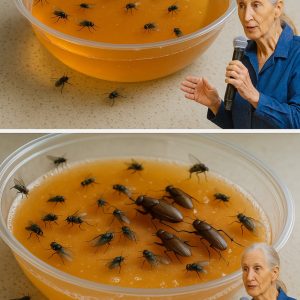
Since ancient times, people have used medicinal plants to fight illness — especially viruses. Rich in natural compounds, these herbs can offer powerful support.
One standout? Elderberry. Known for its bold, tart flavor in syrups and jams, it’s also packed with immune-boosting benefits. While not all herbal claims are fully backed by science yet, elderberry remains a favorite for natural viral protection.
New Findings: Elderberry as a Natural Defense Against Viruses and Flu

Black elderberry, a plant native to Europe and North America, is valued for its flowers and berries, often used in seasonal treats and drinks. The berries are typically picked in late summer or early autumn when they reach full ripeness.
It’s important to harvest them at the right time, as raw or under-ripe elderberries can be toxic. Parts of the plant — like the bark, leaves, flowers, roots, and young shoots — contain a bitter alkaloid and a glycoside, which can produce hydrocyanic acid, a type of cyanide, under certain conditions.
Despite this, elderberries continue to be a popular ingredient in traditional cooking. Many people believe elderberries help strengthen the immune system and lower the risk of getting sick.
Elderberry’s Immune-Boosting Benefits

Elderberries have been shown to carry antiviral properties that help fight off infections. A study from the University of Sydney, led by researcher Golnoosh Torabian, Ph.D., revealed that elderberry has a strong and direct effect against flu viruses.
The fruit works by interfering with the early stages of infection. It blocks viral proteins that are needed for viruses to latch onto and enter human cells.
How Elderberry Fights Viruses: Study Highlights

Scientists used elderberry serum on the flu virus and found it had a mild blocking effect before the virus entered cells but was much more effective at stopping the virus from spreading once cells were infected. Co-author Dr. Peter Valtchev described the results as surprising and encouraging, highlighting that targeting multiple stages of a virus’s life cycle could improve chances of stopping infection.
The study also showed elderberry boosts the immune response by increasing cytokine production, which helps the body fight infections more effectively. The key compounds behind these effects are anthocyanidins, plant pigments known for their antiviral and antioxidant properties.




